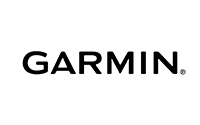

Prepare for a better retirement
Our research with the MIT AgeLab revealed an eye-opening reality—many Americans aren't prepared to live a longer, better life. If we want to help people thrive in retirement, we need to widen our lens on aging well and broaden our focus beyond being just about money.
Planning for longevity is about more than money
Thriving in retirement depends on more than saving money and staying healthy. It’s also about where you live, how you spend your time, the people you’re close to, and whether your home and routines give you a sense of purpose and independence.
Longevity Preparedness Index
We’re proud to introduce the first-of-its-kind Longevity Preparedness Index (LPI), which we developed in partnership with the MIT AgeLab. The study revealed that many Americans are underprepared for a longer life, falling short in critical areas such as care, housing, and health. Instead of focusing on just finances, we looked more deeply at the eight domains of behavior that are critical to aging well.
Explore research on reshaping retirement planning
Why longevity matters
“Our goal with the Longevity Preparedness Index (LPI) is simple—expand the conversation around what it means to prepare well for longer lives by taking a holistic perspective. LPI scores point toward the opportunities people have to achieve their best and healthiest lives while highlighting the progress many are already making in their longevity preparedness. Results from the LPI underscore that taking some small but intentional steps—such as planning for a new hobby, starting a fitness routine, or having a conversation about care—can lead to a better future and make a big impact on how we spend our later years.
We’re proud to work with John Hancock on this research and look forward to seeing what actions organizations, governments, and individuals take as a result.”
Dr. Joe Coughlin, Founder and Director, MIT AgeLab



Health
Getting and staying healthy can help you stay independent.

Finances
Being financially stable starts with making a plan when you’re young.

Daily activities
Making every day count can give you a sense of purpose.

Social connection
Maintaining relationships is vital to your well-being.

Care
Giving care and needing care are natural parts of life.

Home
Staying in your home means making it fit your changing needs.

Community
Living in a place that fits your needs can affect your quality of life.

Life transitions
Embracing big changes can help boost your well-being.

Tuft’s Health & Nutrition Letter
Free subscription
Online guide to living healthier longer

Galleri® cancer screening test
Special pricing of $799 ($150 off regular price)
Improve your chances of detecting 50+ types of cancer early with a simple blood test1

Garmin smartwatches and smart scales
25% discount2
Products to help support your fitness goals and track your health
Important disclosures
Important disclosures
1 Galleri is a blood test from Grail designed to screen for cancer. The Galleri test does not detect all cancers nor does it diagnose cancer. A test result of ''Cancer Signal Detected'' requires confirmatory diagnostic evaluation by medically established procedures (e.g., imaging) to confirm cancer. There may be additional costs for such diagnostic testing. Rx only. It is intended to be used in addition to, and not replace, other cancer screening tests recommended by a healthcare provider. A negative test result does not rule out cancer and in particular the sensitivity rate for detecting cancer in the early stages is lower than for later stages. A false positive or false negative result can occur and results should be discussed with a healthcare provider. Test eligibility is subject to certain qualification requirements, including age and certain health risk factors. There is no coordination between Manulife John Hancock and any health benefits you may receive from an insurance policy, health plan, or any other wellness programs you may be enrolled in.
2 Limit two devices at checkout and one purchase per year per member. Offer may not be combined with any other coupons, discounts, promotions or rebates. Some exclusions may apply, such as newly launched products for 60 days or more post‑launch. Offers subject to change at the discretion of Garmin.
The Galleri test is only available to Manulife John Hancock Retirement plan participants who are 40 years of age or older. Test eligibility is also subject to Grail’s clinically informed criteria, as well as additional cancer risk factors for those ages 40-49. The offer of discounted access to the Galleri test is subject to change. Manulife John Hancock (including John Hancock Distributors) and GRAIL are not affiliated with one another, and neither are responsible for the liabilities of the other. The Galleri test is manufactured and distributed by GRAIL. Manulife John Hancock does not provide medical advice, is not involved in the design or manufacture of the Galleri test and is not responsible for the accuracy or performance of the Galleri test. Galleri is not a test to confirm or rule out genetic or other conditions that may indicate a predisposition to cancer. The Galleri test is currently not approved by the U.S. Food and Drug Administration. Manulife John Hancock does not receive individual test results from GRAIL, nor do they know which customers have requested or taken the test. For purposes of research, validation of assumptions and evaluation of future health and wellness offerings, Manulife John Hancock may receive aggregated and deidentified data from GRAIL from time to time.
The Longevity Preparedness Index was conducted online and by phone interview in English, sourced through the NORC AmeriSpeak Panel. The sample was a U.S. representative sample comprised of 1,307 Americans, aged 18 and up, with specific oversamples of non-Hispanic black panelists, hispanic panelists, and non-Hispanic Asian American and Pacific Islander panelists to ensure adequate sample size for sub-group analysis. During analysis, survey responses were weighted to represent the U.S. population. Survey data were collected from 5/14/25 to 6/5/25, with a median survey length of approximately 25 minutes per respondent. LPI scores can range from 0 (not at all prepared for longevity) to 100 (completely prepared for longevity). The overall LPI is composed of eight domains. Domain scores are each calculated independently and can range from 0 to 100. All eight domain scores were averaged to calculate the overall LPI score. Eight to 26 unique survey items are used to represent preparedness for each domain. Each domain captures positive behaviors toward longevity preparedness and awareness of the importance of a domain. Missing data were handled by imputation based on modal scores by age, gender, and income. Based on respondents aged 65-85, survey items were weighted to indicate their contribution to preparedness within a domain. Items with low weights were removed from score calculation. Behavioral scores (weight 75%) and awareness responses (weight 25%) were combined to create a domain score that can range from 0 to 100.
The Longevity Preparedness Index was developed in collaboration with MIT AgeLab and funded by John Hancock Life Insurance Company (U.S.A.). While financial support was provided for the research, it did not influence the findings, methodology, or conclusions.
Manulife John Hancock is not affiliated with the Massachusetts Institute of Technology (MIT) AgeLab, Garmin, GRAIL or Tufts University's Friedman School of Nutrition, and none are responsible for the liabilities of the other.
MGR1114254981999




